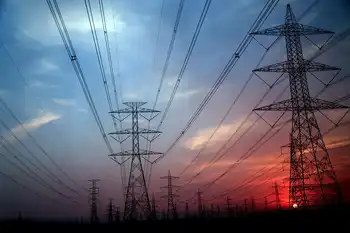Not cheap being green: study
By Toronto Star
NFPA 70e Training
Our customized live online or in‑person group training can be delivered to your staff at your location.

- Live Online
- 6 hours Instructor-led
- Group Training Available
London Economics International found higher energy costs brought on by the legislation would see households pay an average of $280 to $780 more per year between 2010 and 2025, mostly because of increased electricity bills.
The study also says the Liberal government's claim the act will lead to more jobs is "unsubstantiated."
The government says the act, which was introduced in February, will create 50,000 "green collar" jobs over three years and generate economic growth by expediting renewable energy projects and encouraging people to conserve energy.
Energy Minister George Smitherman refuted the consulting group's figures, saying consumers should expect to see their electricity bills increase by 1 per cent annually.
The cost estimates of $280 to $780 more a year are based on "wild fluctuations" in projections, he added.
"I have been very clear about it. One per cent per year, incremental on the cost of a person's electricity bill, with corresponding capability through investments in conservation for people to lessen their use of electricity," he said.
The act is aimed at getting people to use less electricity by creating a "culture of conservation," Smitherman said.
"A strategy associated with that... is the implementation of time-for-use pricing. Electricity will be more cost-effective to use in periods of less demand," Smitherman said.
"We've said all along this legislation would drive up the costs of hydro bills," interim Opposition Leader Bob Runciman said at a news conference.
The act "amounts to little more than a new tax" on struggling Ontario businesses and families, he added.
The consulting firm's estimated $280 to $780 increased cost to families does not include the 13 per cent harmonized tax set to go into effect July 1, 2010.
Electricity, natural gas and household heating oil are currently exempt from provincial tax, but household energy costs will increase by 8 per cent once the tax goes into effect.
Another controversial measure in the legislation is the introduction of home energy audits, at a cost of about $300 each.
The audits will need to be done if homeowners wish to sell their condos or houses.
The full report by London Economics was not released, only the executive summary. The full report will be out by the end of April.











